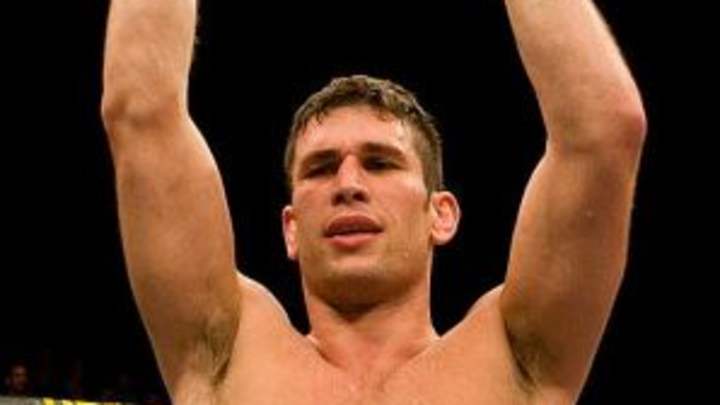What to expect in Season 8


Spike TV's The Ultimate Fighter is often hailed as the show that launched mixed martial arts into mainstream. It's also criticized for adhering to the stale, typical-reality-show format and for prizing wacky personalities instead of talent.
As the show enters its eighth season, and interim heavyweight champion Antonio Rodrigo Nogueira and former champ Frank Mir coaching the crop of lightweights and light heavyweights, here are a few things worth looking out for, as well as some questions that need answering as the show struggles to maintain its contingent of hardcore fans:
Hunting for the magic formula
I'll give the T.U.F. producers credit: They aren't afraid to change something if it's not working. Over the past seven seasons, the show has undergone numerous makeovers, and, in the process, has become less of a traditional reality show and more of a low-budget documentary/UFC commercial. Last season, they may have hit on a magic formula by loading each episode with two fights instead of one. No longer were we forced to sit through 55 minutes of exaggerated drama just to see a one-round mismatch. Plus, we didn't have to deal with as many arguments over whose turn it was to do the dishes. The problem, though, is that there are only so many fights each season. If the show can't afford to use them quickly, the producers will likely try something new to spruce up the format. Flaming wheel of death? Perhaps.
Too harsh too early
The decision to have Nogueira and Mir as this season's coaches was met with heavy criticism from fans who feel that "Big Nog" is light on personality and English skills, and Mir hasn't earned the spot with only two straight victories. It would make sense to look for coaches with vigor and charisma to help carry the sometimes-monotonous storylines, but the duo could prove to be dynamic on camera. Mir's work as a color commentator for World Extreme Cagefighting has shown that he understands the sport well and can articulate it in a way the average fan can appreciate. Nogueira, meanwhile, is arguably one of the UFC's most underused talents, and face time with American audiences could do wonders for him and his career. Of course, the two could end up phoning it in and sleeping on the mats during practices a la "Rampage" Jackson, but I wouldn't bet on it. These guys need the exposure, and they know it.
The experience gap rides again
This season's cast is no different from previous ones: a few of the contenders already have a career's worth of fights under their belts (like Jason Guida -- brother to lightweight Clay Guida - who has more than 30 bouts), while many others only have one or two. In the past, this seemed like a ploy to make the more experienced fighters look that much better as they pummeled the rookies on national television. Then Amir Sadollah flipped that paradigm on its head by winning last season after coming in with a flawless 0-0 record. A fluke, or merely a sign that raw talent can trump experience in a competition like this? Anything can happen, but if you ask me, I'm guessing Sadollah was a one-shot deal.
Alcohol abuse and property damage - a thing of the past?
How many times can we see the same thing happen? Guys get drunk and destroy the house, mainly out of boredom that is aggressively heaped on them in the hopes of creating such drama for the cameras. It's so inevitable that it's practically a rite of passage for T.U.F.'ers. But word has it that, after more than $70,000 of damage to the house in Season 7, the UFC told this season's fighters that they'd have to pay for any destruction they cause. This could be a sign that the show's overall attitude has changed. However, don't for a second think the open bar in the house and the almost-encouraged alcohol bingeing is going anywhere. This may be a competition, but it's also reality TV.
Early Signals
Just looking at the roster, it's easy to spot the favorites. Guys like Ryan Bader, Joe Duarte and Shane Nelson stand out among the rest of the field. However, it's one thing to look good on paper and another to stay focused and healthy in the grueling fishbowl of the T.U.F. tournament. Pay close attention to when the coaches pick their teams. The editing that is done, with the benefit of hindsight from the producers, can serve as a clue as to who the UFC favors and who it has already begun to ignore.
